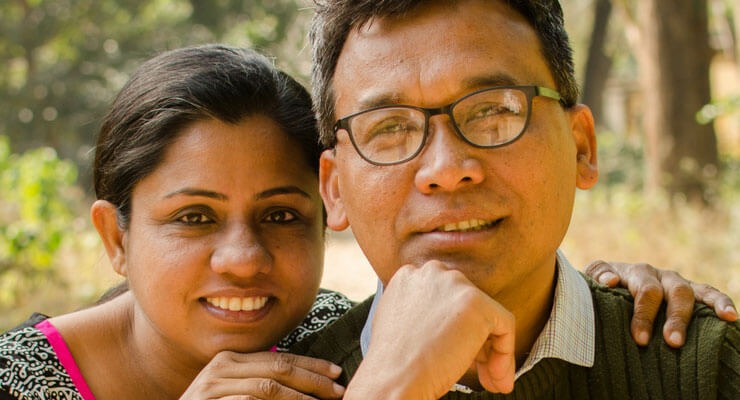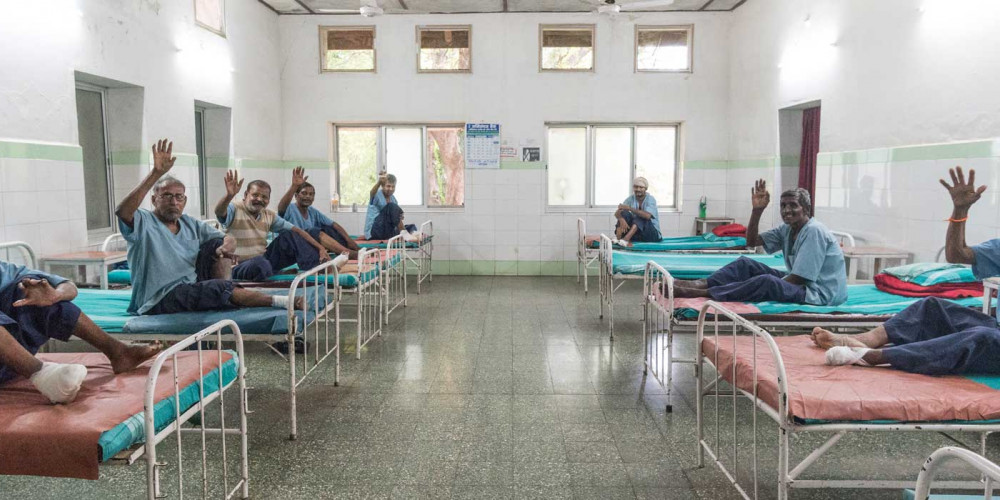KIT Blog
“More than just medical work” – inside a Leprosy Mission hospital in India
-
 The Leprosy Mission Australia
The Leprosy Mission Australia
- May 14, 2019
- India
People affected by leprosy in India often experience rejection and discrimination from society. Some are not even allowed to enter hospitals or medical facilities because of the stigma associated with the disease.
But at a Leprosy Mission hospital, no one is turned away. Everyone is welcome.
Dr Famkima Darlong, head of Hospital Program at The Leprosy Mission Trust India, explains why it is important to provide Christ-centred care to people affected by leprosy.
“We don’t see just the disease or just the medical problem, but we see the individual as a person, as one of God’s creation, because we’re all created in the image of God,” Dr Famkima said.
Dr Famkima first worked at The Leprosy Mission Trust India more than 17 years ago when he was posted as an Ophthalmologist and Medical Superintendent.
“When you join Leprosy Mission, you start working with people affected by leprosy. Their needs are totally different,” Dr Famkima said.
“They don’t just come with medical problems, they come with their family problems, they come with the social problems and with a lot of stigma and discrimination attached to the disease.
 Dr Famkima Darlong with his wife Joydeepa Darlong
Dr Famkima Darlong with his wife Joydeepa Darlong
“I think as a Christian doctor, you find your role is much bigger than just doing the medical work. I think that’s where the whole challenges comes because you don’t want to just do your medicine, practicing medicine alone, but bring a bigger impact as a Christian doctor.”
Many of the patients who come to the hospital believe leprosy is a curse, and this self-stigma can perpetuate a negative image of themselves.
That is why Leprosy Mission hospitals provide holistic care to people affected by leprosy, so that they are healed both physically and spiritually.
“They might feel that nobody cares for them anymore, nobody loves them or they’re not accepted,” Dr Famkima said.
“So that’s where our role comes at the Leprosy Mission as Christians…how we bring healing by praying with them, by sharing with them the love of God.
“I think that’s what makes the Leprosy Mission lot of different than any other healthcare providers working in the field of leprosy.”
Some patients reside at the hospital for many months if they develop complications. Others are forced to stay, even after they have completed their treatment, because they have nowhere else to go to.
For people like Munia who face violence and even the possibility of death if she returns to her village, The Leprosy Mission Hospital was a safe place where she was cared for and treated with love.
This is why The Leprosy Mission nurses, doctors and staff go beyond providing just medical care for people affected by leprosy.
“Some of the people come to us at very late stage. There may be times where we may not be able to do anything anymore to them, but at least you can give them the healing of the heart and the spirit and the soul. I think that’s ultimate healing that we can offer,” Dr Famkima said.
Give now to support Dr Famkima’s work and help provide healing and restoration for people who have nowhere else to go: https://www.leprosymission.org.au/match-appeal/













